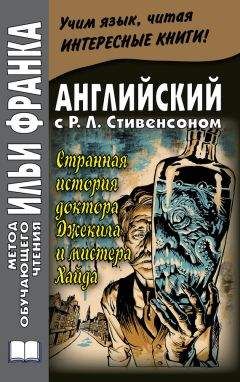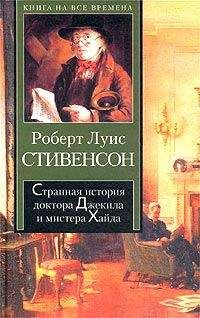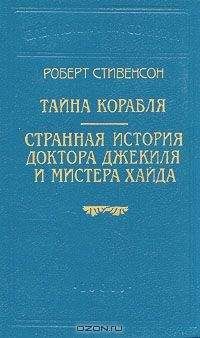Robert Stevenson - Английский язык с Р. Л. Стивенсоном. Странная история доктора Джекила и мистера Хайда
From the time he had left the house in Soho on the morning of the murder (с того момента, когда он покинул дом в Сохо в утро убийства; time — время; определенныймомент), he was simply blotted out (он просто-напросто испарился; to blot /out/ — стирать, вычеркивать; blot — пятно; клякса); and gradually, as time drew on, Mr. Utterson began to recover from the hotness of his alarm (и постепенно, со временем, мистер Аттерсон начал оправляться от своей жгучей тревоги; to draw on — идти, протекать/овремени/; hot — горячий, жаркий; напряженный), and to grow more quiet with himself (и становиться все более спокойным). The death of Sir Danvers was, to his way of thinking (по его мнению, смерть сэра Дэнверса), more than paid for by the disappearance of Mr. Hyde (была более чем искуплена исчезновением мистера Хайда; to pay — платить; возмещать). Now that the evil influence had been withdrawn (теперь, когда пагубное влияние исчезло; to withdraw — отдергивать /напр., руку/; отнимать; ретироваться, удаляться, уходить), a new life began for Dr. Jekyll (для доктора Джекила началась новая жизнь).
gradually ['grxdZuqlI] alarm [q'lQ:m] disappearance ["dIsq'pI(q)rqns]
From the time he had left the house in Soho on the morning of the murder, he was simply blotted out; and gradually, as time drew on, Mr. Utterson began to recover from the hotness of his alarm, and to grow more quiet with himself. The death of Sir Danvers was, to his way of thinking, more than paid for by the disappearance of Mr. Hyde. Now that the evil influence had been withdrawn, a new life began for Dr. Jekyll.
He came out of his seclusion (он вырвался из своего уединения), renewed relations with his friends (возобновил отношения со своими друзьями), became once more their familiar guest and entertainer (вновь превратившись в их привычного гостя и гостеприимного хозяина; familiar — близкий; давнознакомый, привычный; to entertain — принимать, угощать/гостей/); and whilst he had always been known for charities (и тогда как он всегда был известен = славился своей благотворительностью), he was now no less distinguished for his religion (теперь он стал не менее известен своей религиозностью = благочестием). He was busy, he was much in the open air, he did good (он вел деятельную жизнь, проводил много времени на открытом воздухе, занимался благотворительностью); his face seemed to open and brighten (лицо его, казалось, стало более открытым и наполнилось радостью), as if with an inward consciousness of service (словно от внутреннего сознания служения = как у человека, обретшего душевный мир в служении добру; service — услужение; одолжение, помощь); and for more than two months, the doctor was at peace (и более чем два месяца доктор пребывал в спокойствии; peace — мир; покой, спокойствие).
seclusion [sI'klu:Z(q)n] guest [gest] entertainer ["entq'teInq] distinguished [dIs'tINgwISt] consciousness ['kOnSqsnIs]
He came out of his seclusion, renewed relations with his friends, became once more their familiar guest and entertainer; and whilst he had always been known for charities, he was now no less distinguished for his religion. He was busy, he was much in the open air, he did good; his face seemed to open and brighten, as if with an inward consciousness of service; and for more than two months, the doctor was at peace.
On the 8th of January Utterson had dined at the doctor's with a small party (восьмого января Аттерсон обедал у доктора в небольшой компании друзей; party — отряд, команда; компания); Lanyon had been there (там также присутствовал и Лэньон); and the face of the host had looked from one to the other (и хозяин переводил взгляд от одного к другому) as in the old days when the trio were inseparable friends (как в старые времена, когда все трое были неразлучными друзьями). On the 12th, and again on the 14th, the door was shut against the lawyer (двенадцатого, а потом еще и четырнадцатого, дверь для нотариуса оказалась закрытой). "The doctor was confined to the house (доктор заперся в доме; confined — ограниченный; заключенный)," Poole said, "and saw no one (и никого не принимал; to see — видеть; принимать)." On the 15th, he tried again, and was again refused (пятнадцатого числа он снова попытался /увидеться с доктором/, и вновь ему было отказано); and having now been used for the last two months to see his friend almost daily (и, так как за эти последние два месяца он привык видеться со своим другом почти каждый день), he found this return of solitude to weigh upon his spirits (он обнаружил, что это возвращение к одиночеству стало угнетать его; to weigh — взвешивать; довлеть, угнетать; spirit — душа; настроение, душевноесостояние). The fifth night, he had in Guest to dine with him (на пятый день: «на пятую ночь» он пригласил Геста к себе, чтобы отобедать с ним; to have in — приглашатьвгости; вызыватьнадом); and the sixth he betook himself to Dr. Lanyon's (а на шестой отправился к доктору Лэньону).
inseparable [In'sep(q)rqb(q)l] confined [kqn'faInd] refused [rI'fju:zd] solitude ['sOlItju:d]
On the 8th of January Utterson had dined at the doctor's with a small party; Lanyon had been there; and the face of the host had looked from one to the other as in the old days when the trio were inseparable friends. On the 12th, and again on the 14th, the door was shut against the lawyer. "The doctor was confined to the house," Poole said, "and saw no one." On the 15th, he tried again, and was again refused; and having now been used for the last two months to see his friend almost daily, he found this return of solitude to weigh upon his spirits. The fifth night, he had in Guest to dine with him; and the sixth he betook himself to Dr. Lanyon's.
There at least he was not denied admittance (там, по крайней мере, ему не отказали = позволили войти: «ему не было отказано в приеме»; to deny — отрицать; отказывать, недавать; admittance — вход, доступ, подход; разрешениенавход; to admit — допускать; принимать; впускать); but when he came in (но когда он вошел), he was shocked at the change which had taken place in the doctor's appearance (он был потрясен переменой, произошедшей во внешности доктора). He had his death-warrant written legibly upon his face (на его лице был четко написан = ясночитался смертный приговор; legibly — разборчиво, четко). The rosy man had grown pale (этот цветущий человек побледнел; rosy — розовый; румяный, цветущий); his flesh had fallen away (он сильно исхудал; flesh — тело, плоть; to fall away — уменьшаться; худеть, терятьввесе); he was visibly balder and older (он заметно полысел и постарел); and yet it was not so much these tokens of a swift physical decay (и все же не столько симптомы быстротечного телесного упадка; token —знак, символ; признак, примета; симптом) that arrested the lawyer's notice (остановили на себе внимание нотариуса; to arrest — арестовать; приковывать, останавливать), as a look in the eye and quality of manner (сколько взгляд в его глазах и некая манера поведения) that seemed to testify to some deep-seated terror of the mind (которая, казалось, свидетельствовала о каком-то затаенном: «глубоко засевшем» душевном ужасе; quality — качество; свойство, признак; to testify — даватьпоказания; свидетельствовать; to seat — располагаться, находиться, пребывать, бытьрасположенным, помещаться).
deny [dI'naI] admittance [qd'mIt(q)ns] death-warrant ['deT"wOr(q)nt] legibly ['ledZqblI] decay [dI'keI]
There at least he was not denied admittance; but when he came in, he was shocked at the change which had taken place in the doctor's appearance. He had his death-warrant written legibly upon his face. The rosy man had grown pale; his flesh had fallen away; he was visibly balder and older; and yet it was not so much these tokens of a swift physical decay that arrested the lawyer's notice, as a look in the eye and quality of manner that seemed to testify to some deep-seated terror of the mind.
It was unlikely that the doctor should fear death (маловероятно, что доктор боялся смерти); and yet that was what Utterson was tempted to suspect (и все же именно это Аттерсон был склонен заподозрить; to tempt — соблазнять, искушать; прельщать, привлекать). "Yes," he thought; "he is a doctor, he must know his own state (он доктор и должен знать о своем собственном состоянии) and that his days are counted (и что дни его сочтены); and the knowledge is more than he can bear (и это знание — большее, чем он может вынести)." And yet when Utterson remarked on his ill looks (и все же, когда Аттерсон отметил, как тот плохо выглядит: «высказался по поводу его плохого = болезненного вида»), it was with an air of great firmness that Lanyon declared himself a doomed man (то с видом большой твердости Лэньон объявил себя обреченным человеком = сообщил, что он обречен; air— воздух; вид, выражение лица; todoom— предназначать, обрекать, предопределять; приговаривать, выносить обвинительный приговор).




